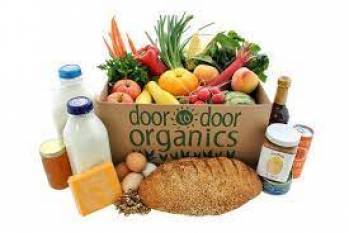NEW DELHI, 5 July 2021: Over 97.4 percent consumers were found aware of the fact that chemical input-based food products are harmful for health compared to 86 percent of the same set of consumers in 2017. Similarly, the percentage of farmers doing organic farming has risen to 23 percent from 19 percent from the same set of farmers in 2017, which is a pleasant outcome.
The above results are some of the key highlights of the study, which has shown deep impact with tremendous results, as has been revealed through an end line survey conducted by consumer advocacy group CUTS International under its project ProOrganic, which was implemented in partnership with Swedish Society for Nature Conservation (1 April, 2017 to 31 March, 2021) with a purpose to 'Develop a Culture of Sustainable Consumption and Lifestyle in the State of Rajasthan with Special Focus on Organic Consumption and Production' in the targeted ten districts of the state, CUTS International director George Cheriyan said.
The purpose of the end line research was to gauge the level of impact seen over the last four years of intervention as part of CUTS's project outcome comparing these with the baseline results and findings under the same project.
This survey study also earmarks an end line evaluation of the project with a goal to assess the project effectiveness and to collect evidence of change due to the project intervention and to capture the perception/experience from various stakeholders about awareness, capacity, challenges and suggestions etc. in the study area covering 46 gram panchayats from 23 selected blocks of ten project districts of Jaipur, Dausa, Kota, Jhalawar, Udaipur, Jodhpur, Sawai Madhopur, Chittorgarh, Bhilwara and Pratapgarh as told by CUTS International Assistant Director Deepak Saxena.
Under the quantitative analysis of the survey targeting ONLY CONSUMERS (1750 samples), compared with baseline survey results of 2017, the other key findings show that 94.7 percent consumer respondents reported general awareness about organic products in comparison to 84 percent consumers during the baseline. 66.8 percent of consumer respondents reported having purchased organic products ever.
This is a huge difference from baseline as there were only 39 percent consumers reporting buying of organic products ever. Only 26 percent (from 66.8 percent) of those purchasing organic products reported higher prices for organic products in comparison to more than half of the consumer respondents in the baseline.
Another satisfying result is that now only 40 percent consumer respondents this time reported facing difficulty in finding organic products as against 68 percent of consumers reporting it during the baseline.
It is also revealed from the study that 30.7 percent of consumer respondents were satisfied, while 63 percent were partially satisfied with the quality of organic products they had purchased in comparison to the data of baseline, which was 56 percent consumers reporting satisfaction and 34 percent consumers reporting partial satisfaction. Lesser number of satisfied consumers in 2021 is due the factors related to growing number of retailers in the market, which resulted into a competition affecting consumers both in terms of price and quality of goods.
Similarly, the quantitative analysis targeting ONLY FARMERS (640 samples), the other key findings besides 23 percent of farmers reporting doing full organic farming, 11 percent says that they are doing chemical, while 66 percent reported to be involved in doing both chemical and organic mix farming, which comparing the same data of 2017 baseline were 19 percent for complete organic, 55 percent for both and 26 percent respectively for chemical exclusive. In another interesting question, 97 percent of farmers reported awareness on ill effects of farming based on chemical inputs, which was earlier reported by the same set of farmers at 94 percent in 2017.
In continuation, 18 percent of farmers from the 77 percent (66+11) involved in both chemical and mix reported easy availability of chemical inputs as the reason of using chemical inputs, whereas 66 percent reported more production with chemical used farming resulting into more profits and income, while the remaining 15 percent reported less price of their produces as the reason for using the chemical option. As part of the general question, 98 percent respondents reported that they will motivate others to adopt organic farming as against the figure of 91 percent in the baseline.
As part of qualitative analysis (with 2390 samples), the views and suggestions were gouged out from the stakeholders like officials from agriculture department, agriculture university and college professors and other academics, officials in krishi vigyan kendras and experts from research organisations like RARI and CAZRI etc.
The advocacy points derived from their views were analysed like forming a commission/corporation for promotion of organic farming and consumption in the state in a focussed manner, strengthening and expansion of mission 'Organic Dungarpur' like initiatives, which is a good in order to bring the desired outcome, launching "Mission Organic Rajasthan" on the side-lines of region-specific plans, strengthening and expanding PMKVY like schemes.
Besides, producers/farmers should be motivated to adopt organic farming in a phased manner for marketing of organic produce and a separate agency on the lines of Agriculture Marketing Board should be constituted for development of market access initiatives, pricing support and forward and backward linkages throughout the value chain.
This agency would promote provisions of separate outlets/dedicated platforms for sale of organic grains/vegetables with a premium pricing system. Minimum Support Prices (MSP) should be announced by the government for various organic gains/products.
Technological inputs should be promoted in organic farming and consumption space. Applications may be developed and cadres on the lines of Business Correspondents may be promoted. They may also facilitate provision of information and credit to the farmers through various banks and rural credit institutions.
Above findings of the endline survey were revealed and shared with participants of the state level consultant's orientation held in Jaipur on 2 July 2021.
Image credit: dahu.bio




















